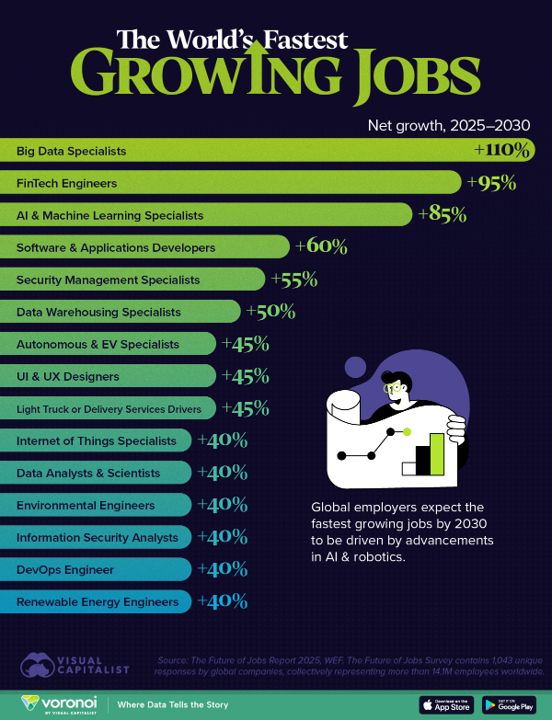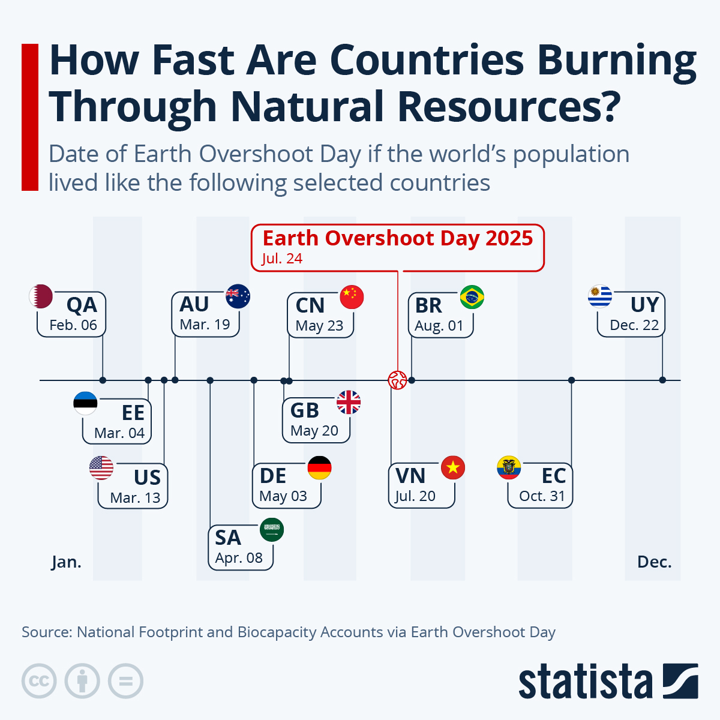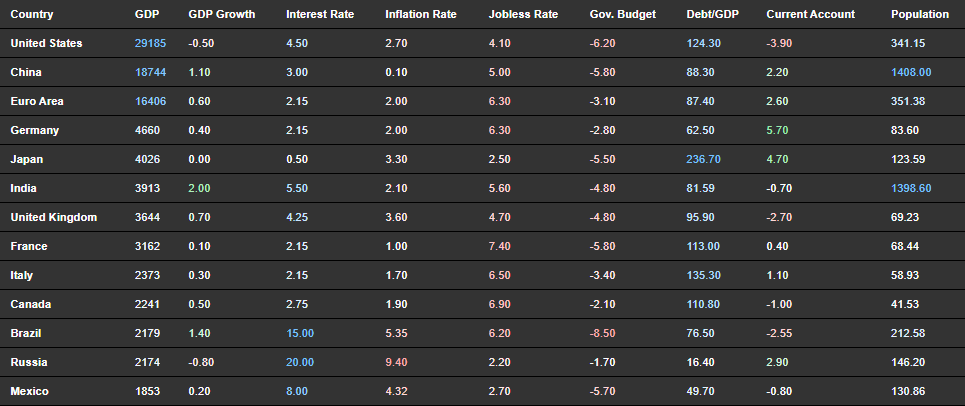Home > Edgenie Sunday Schroll: Newsletter > " Don't Waste Your Summer! 🌞?"
Jump to Section:
"Don't Waste Your Summer! 🌞"
Airlines’ favourite new pricing trick
Summary
A Level Economics Questions:
Possible A Level Economics 25 Marker Question
Infographic of the Week

AI, Automation, and the Jobs of Tomorrow: The 15 Fastest Growing Careers by 2030
According to the World Economic Forum’s Future of Jobs Report 2025, the global labour market is undergoing a dramatic shift driven by artificial intelligence and robotics. The fastest growing roles between 2025 and 2030 are led by Big Data Specialists (+110%), followed by FinTech Engineers (+95%) and AI & Machine Learning Specialists (+85%). Almost all of the top 15 roles—including DevOps Engineers, Data Analysts, Cybersecurity Experts, and Renewable Energy Engineers—are technology-related, reflecting soaring demand for digital, data, and automation skills. While software development and information security remain vital, the findings suggest that future career growth will be overwhelmingly shaped by technological transformation, sustainability concerns, and the need for agile data-driven innovation across sectors.
Chart of the Week

Overshoot and Inequality: How Wealthy Nations Drain the Earth’s Resources Fast
Earth Overshoot Day in 2025 falls on July 24, marking the point where humanity’s demand for ecological resources exceeds what the planet can regenerate in a year. This means that from July onwards, we are effectively living beyond our environmental means. New data from the Global Footprint Network highlights the alarming disparity in resource consumption between countries. Wealthier, industrialised nations such as Qatar reach their national overshoot day shockingly early—by 6 February—while more sustainable countries like Uruguay don’t reach theirs until December. The analysis accounts for each country’s available biocapacity and the ecological footprint of its citizens, including demands for food, timber, energy, infrastructure, and waste absorption. The findings underscore not only the urgency of global sustainability efforts but also the deep-rooted inequality in how natural resources are consumed.
Macroeconomic Data

Whenever you're ready there is one way I can help you.
Emre Aksahin
Chief Learning Officer at Edgenie


